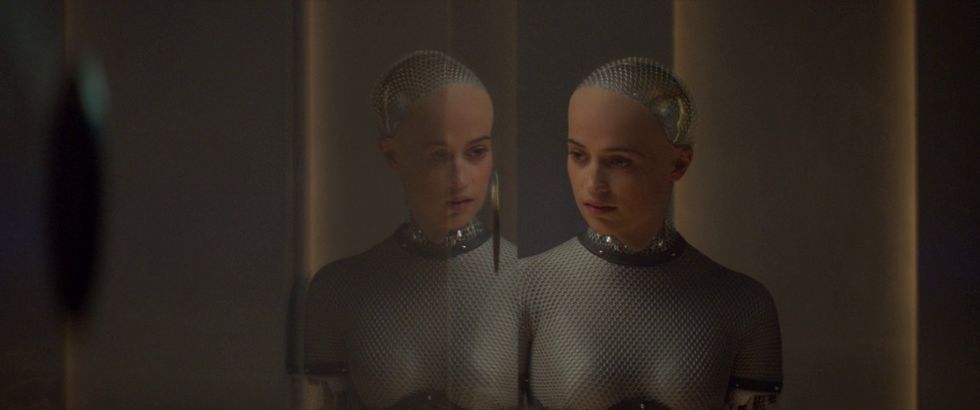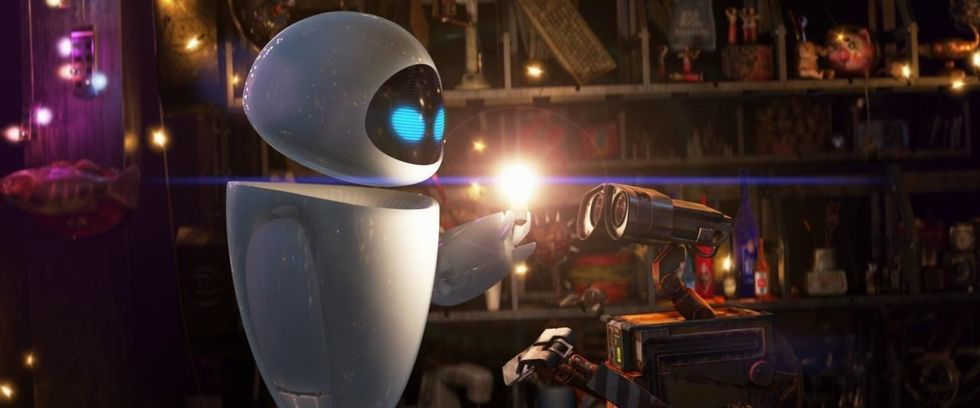What is Ethical AI in Film and TV?
Companies say they're using it, but is there a clear definition?

AI: Artificial Intelligence
People keep sending me their AI companies and telling me they're ethical. It's the fun new thing they put in their bios. "We're an ethical AI company."
But the thing is, it seems like there's actually no official definition for that term.
It would be like OJ calling himself an ethical running back -- you can say it, but it just doesn't mean it's true.
The only truth is that artificial intelligence has the power to reshape the entertainment industry.
Today, we're talking about the ethics of this technology—the biases, the potential for misuse, and the path to a responsible future for movies and television.
So let's come up with a definition of ethical AI together.
What is Ethical AI?
We all want to feel like the computer programs everyone is using to write their blogs and polish their emails. And the more these programs invade Hollywood, the more we have to worry about how they're stealing ideas, images, and everything else.
Ethical AI focuses on the responsible and fair use of artificial intelligence technologies.
In the context of film and TV, it covers areas like:
- Bias and Representation: AI algorithms can perpetuate harmful biases if the data used to train them is limited or skewed. Ethical AI aims to ensure diverse representation in front of the camera and behind the scenes, as well as in how characters and stories are portrayed. This includes avoiding stereotypes and harmful tropes across race, gender, sexual orientation, disability, etc.
- Transparency: Audiences should be able to understand when AI is used in the creation or alteration of content, and filmmakers should be clear about the extent of its use.
- Consent and Ownership: If AI is used to recreate deceased actor's likenesses, deepfakes, or to manipulate voices, it's important to consider consent (from the original person or their estate when applicable), ownership of the resulting work, and compensation for those involved.
- Labor Concerns: AI tools have the potential to automate certain creative processes. The focus should be on using AI to assist and enhance the work of writers, performers, and technicians, rather than aiming for full replacement.
What Are The Key Issues with AI in Hollywood?

Ex Machina
film-grab.com
There are plenty of issues with AI in Hollywood. One I came across on Monday was a contest offering AI screenwriting feedback for underrepresented groups in Hollywood.
It sounds great, right?
But the issue with using AI to rate these scripts is that AI can only judge by what we've already had in Hollywood—which is a majority straight, white points of view. So how can a computer then judge or even highlight what they want to be new voices? It has no concept of new.
Aside from these sorts of ideas, we also have to worry about:
- Deepfakes and Synthetic Media: AI can convincingly create content that never happened. Ethical concerns revolve around misinformation, nonconsensual creation of harmful content, and potential damage to reputations.
- Replacing Human Labor: While AI can streamline processes, the fear is that it may displace screenwriters, actors, or VFX artists. Establishing ethical frameworks to use AI as a tool rather than direct replacement is important.
- Misrepresentation and Bias: Algorithms trained on biased data risk perpetuating existing societal issues around race, gender, etc. Filmmakers need to consciously source diverse data and implement safeguards against bias in AI storytelling.
Examples of Ethical AI

WALL-E
film-grab.com
So how do we bring ethics into this scenario? Well, ethics needs to be determined by humans who have studied this stuff.
I'm not one of those humans, so I can only aggregate ideas across the internet I think are fair and useful.
Let's go over some ethical uses below:
- De-aging Technology: Using AI to de-age actors in a way that's respectful, with explicit consent, and clearly labeled as such for the audience.
- Voice Replacement: Using AI to replace actors' voices for accessibility purposes (e.g., dubbing, assistive technologies) or with consent (and payment) to continue a role after an actor is unable to.
- Bias Mitigation Strategies: Actively reviewing datasets and algorithms used in AI-powered screenwriting tools or character generation to eliminate biases and increase inclusion.
- Collaboration: Filmmakers, technology developers, unions, and ethicists should work together to set clear guidelines for the industry.
- Accountability: Establishing systems to track and address bias in AI models, and for reporting instances where AI is used unethically.
- Education: Raising awareness among industry professionals, audiences, and regulators is vital.
We've only scratched the surface on ethical AI in film and TV. The challenges are real, but the potential benefits are worth pursuing. Let's keep thinking critically, and working towards a future where AI truly enriches the art we love.
And let me know what you think in the comments.
- How is AI Affecting the Democratization of Filmmaking ›
- Is the Use of AI in 'Late Night With the Devil' Ethical? ›
- Ready to Let ChatGPT Guide You Through Your Filmmaking Process? | No Film School ›











